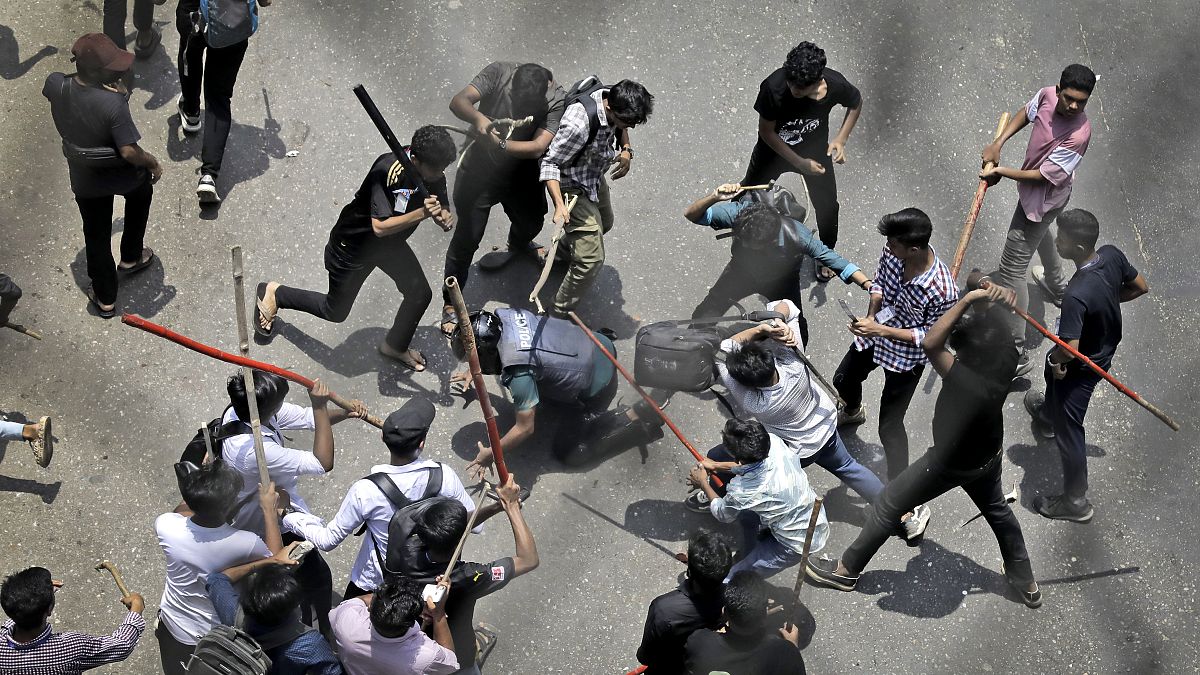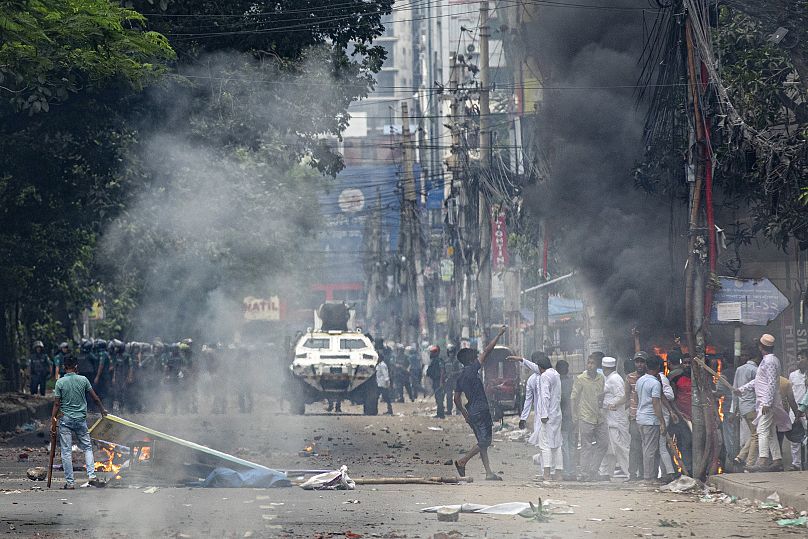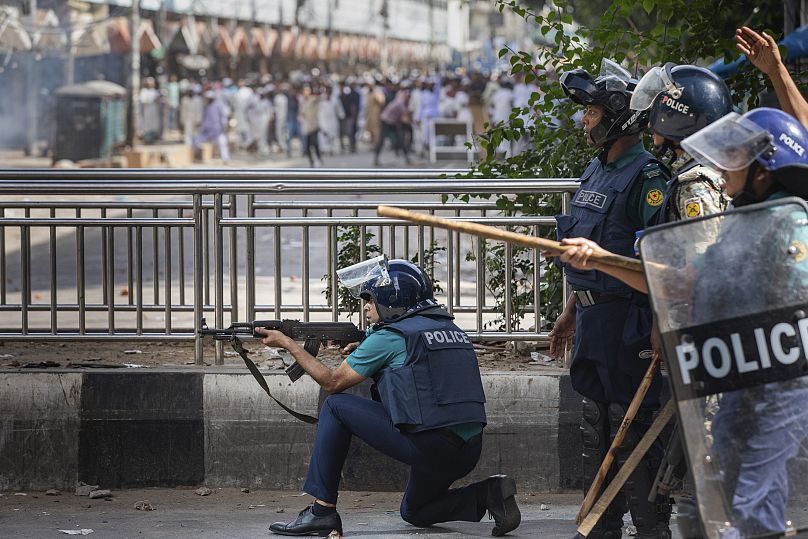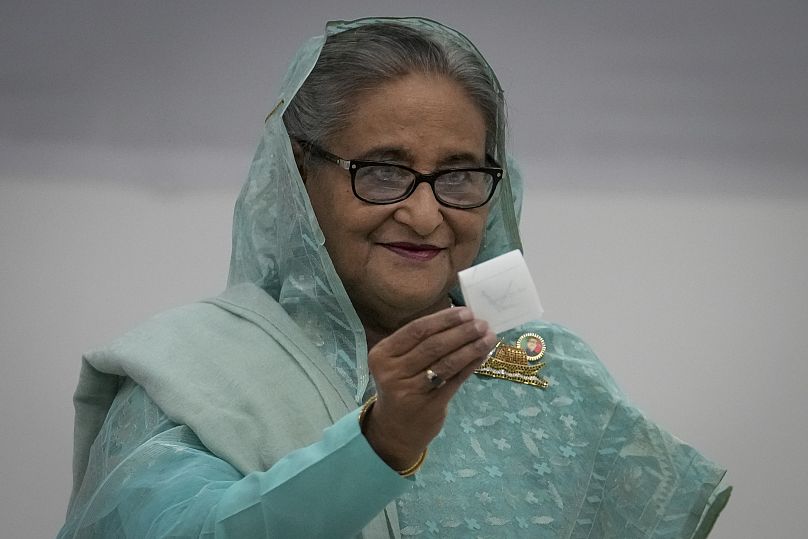
Bangladesh has extended its nationwide curfew as its Supreme Court rules on a civil service hiring quota which has sparked violent protests in the last few days.
Universities have been closed, the internet has been shut off and the government has ordered people to stay at home.
People will only be allowed out between 3pm and 5pm, and only to run essential errands.
Meanwhile, the government has declared Sunday and Monday as public holidays, with only emergency services allowed to operate.
The Supreme Court has now scaled back the controversial system, which had reserved 30% of government jobs for relatives of veterans who fought in Bangladesh’s war of independence in 1971.
The government previously halted it in 2018 following mass student protests, but in June, Bangladesh’s High Court reinstated the quotas and set off a new round of protests.

Ruling on an appeal, the Supreme Court ordered that the veterans’ quota be cut to 5%, with 93% of jobs to be allocated on merit. The remaining 2% will be set aside for members of ethnic minorities and transgender and disabled people.
It’s a partial victory for student protesters after days of deadly clashes with police led to the deaths of at least 100 people, according to national media.
But with most communications offline, it was unclear whether the verdict has satisfied protesting students.
There was also no immediate reaction from the government.
The protests turned deadly on Tuesday, a day after students at Dhaka University began clashing with police. Violence continued to escalate as police fired tear gas and rubber bullets and hurled smoke grenades to scatter stone-throwing protesters.

The protests have posed the most serious challenge to Bangladesh’s government since Prime Minister Sheikh Hasina won a fourth consecutive term in January’s elections that were boycotted by the main opposition groups.
Critics argue the quota system is discriminatory and benefits supporters of Sheikh Hasina, whose Awami League party led the independence movement, saying it should be replaced with a merit-based system.
Hasina had defended the quota system, saying that veterans deserve the highest respect for their contributions in the war against Pakistan, regardless of their political affiliation.

Representatives from both sides met late Friday in an attempt to reach a resolution and Law Minister Anisul Huq said the government was open to discussing their demands.
In addition to quota reform, the demands included reopening of university dormitories and for some university officials to step down after failing to protect campuses.
The main opposition Bangladesh Nationalist Party has backed the protests, vowing to organise its own demonstrations as many of its supporters have joined the student-led protests.
However, the BNP said in a statement its followers were not responsible for the violence and denied the ruling party’s accusations of using the protests for political gains.





